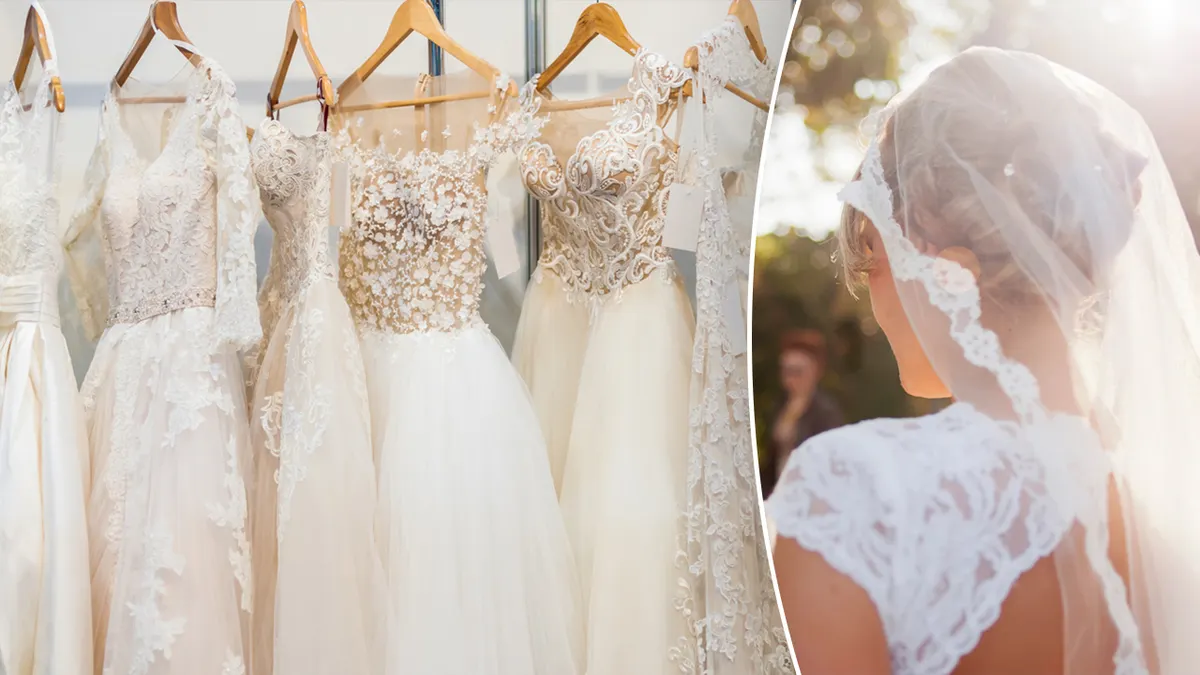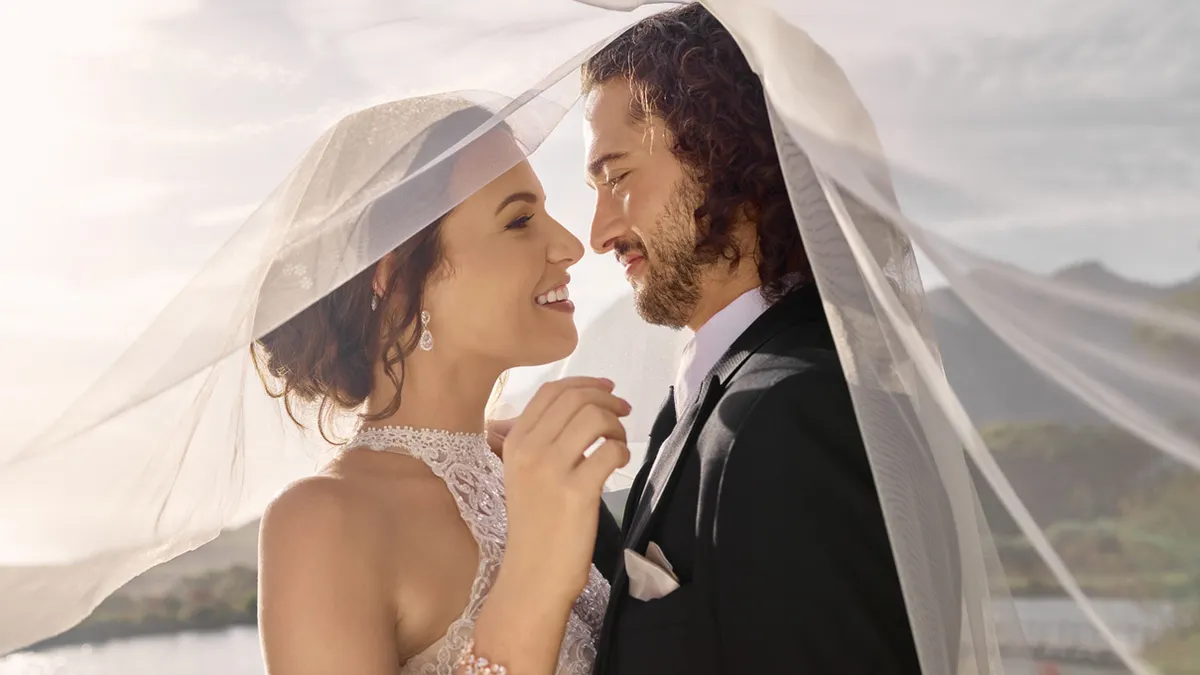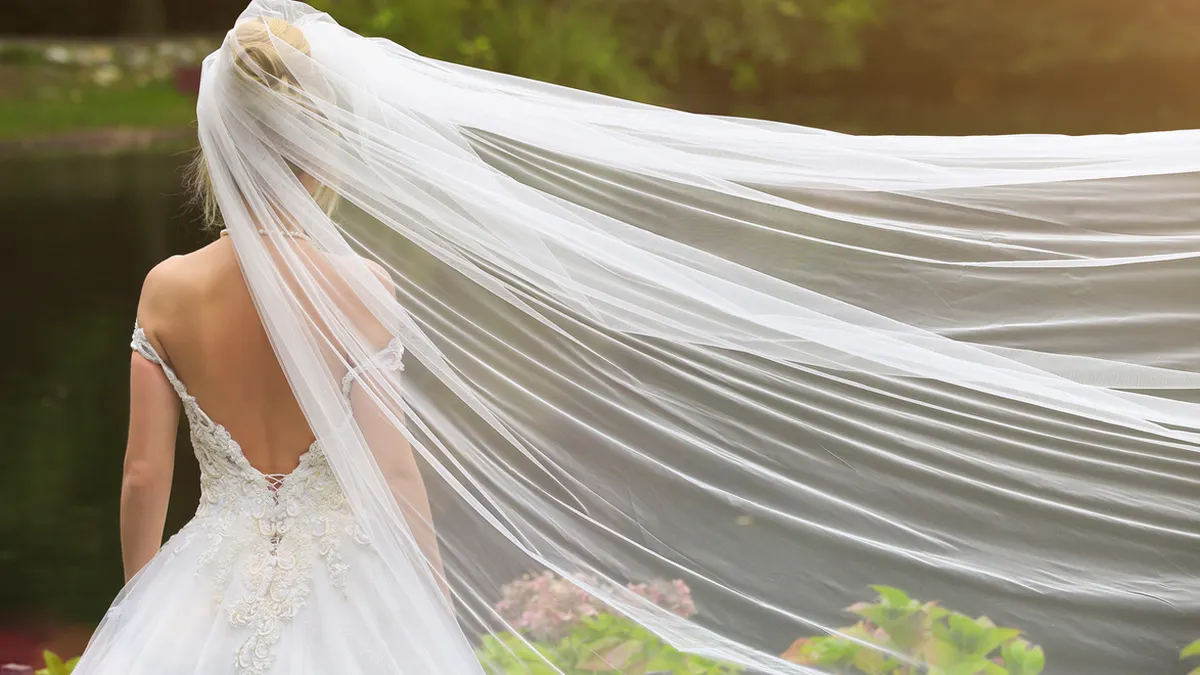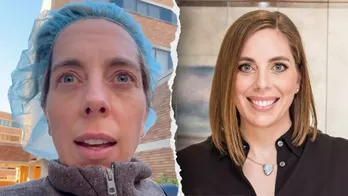Wedding veils date back to ancient times, yet modern brides still reach for the accessory to complete their look.
While veils have long been a popular wedding-day accessory, the reason brides place them atop their heads before they walk down the aisle has shifted over the years.
The history of the wedding veil dates back to ancient Rome and Greece.
MUST-HAVE INFORMATION ON ANY WEDDING WEBSITE
In the early days of veil-wearing by brides, the veil was a means of protection from evil spirits, Natalya Kolosok, CEO of New York City Bride, told Fox News Digital in a phone interview.
When Christianity began to spread throughout Europe, the veil's meaning grew, symbolizing modesty, purity and chastity, Kolosok said.

The meaning of the veil started shifting over time.
"I believe it was Queen Victoria's marriage to Prince Albert, if I'm not mistaken, when the white wedding dress and white wedding veil became popular in the western world," Kolosok said.
This marriage took place in February 1840.
Modern brides' reasons for reaching for a wedding veil to complete their look vary. Many still wear the veil for its religious significance, but that is not the only reason.
TO SIGN UP FOR OUR LIFESTYLE NEWSLETTER
"While veils are still worn for religious or cultural reasons, they have evolved into a fashion statement, with many of our Grace brides wearing them to reflect their unique style and elevate their bridal look," Rosie Keating, head designer of Grace Loves Lace, whose head office is in Burleigh Heads, Australia, but also has locations throughout the U.S., Canada and the UK, told Fox News Digital via email.
The veil is often used as an accessory that exudes elegance and beauty.

"Right now I think it’s more of a personal choice, what we see from the brides. We still have some brides who are wearing veils for religious purposes or to honor family traditions, but I think the role is now transformed," Kolosok said. "It’s more of [an] accessory for beauty and elegance."
Many brides also choose to wear veils today as a visual representation of the major transition they are going through in their lives as they wed.
"Many [brides] actually mentioned that the veil right now for them represents [a] transition from one stage of life to another," Kolosok said.
"When the brides wear the veil and then the husband lifts the veil, it's a beginning of new life."
For more Lifestyle articles, visit www.foxnews.com/lifestyle
Today, there are a variety of veils a bride can choose. These include the small birdcage veil, which only covers a bride's eyes and nose, to the cathedral veil, which is large, dramatic and elegantly follows brides down the aisle.
Modern brides can even choose to have a matching veil, to perfectly compliment their gown.

"I would say that nowadays, in most cases, the wedding veil would complement the dress and many brides right now — they would like to have a matching veil," Kolosok told Fox News Digital.
This is something Kolosok said most designers would not typically do in the past, but many do today, as the matching veil option is so popular.
"A matching veil is usually customized, so it can be different sizes, and the veil design can also match a bride’s personality and can match the wedding dress," continued Kolosok.
If a bride wants an additional accessory for her wedding day look but is not a fan of the veil, there are plenty of other options to wear to compliment the dress, such as a flower crown, tiara or headband.
A bride may also opt for no headpiece at all, and find that another accessory is the perfect fit.
"Sometimes, the perfect finishing touch might be as simple as a pair of statement earrings or shoes," Keating said. "Ultimately, it's about expressing what feels authentic."


